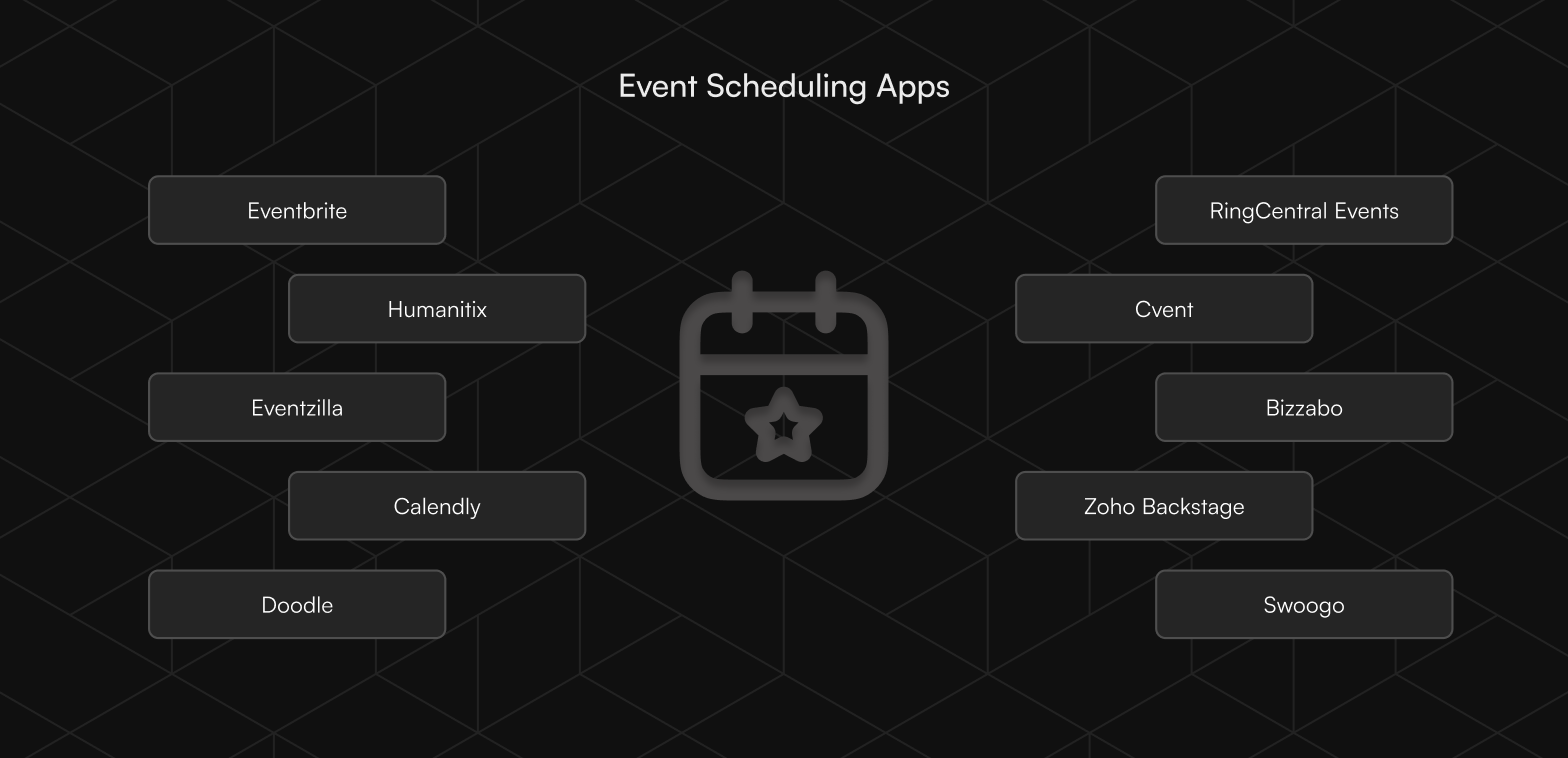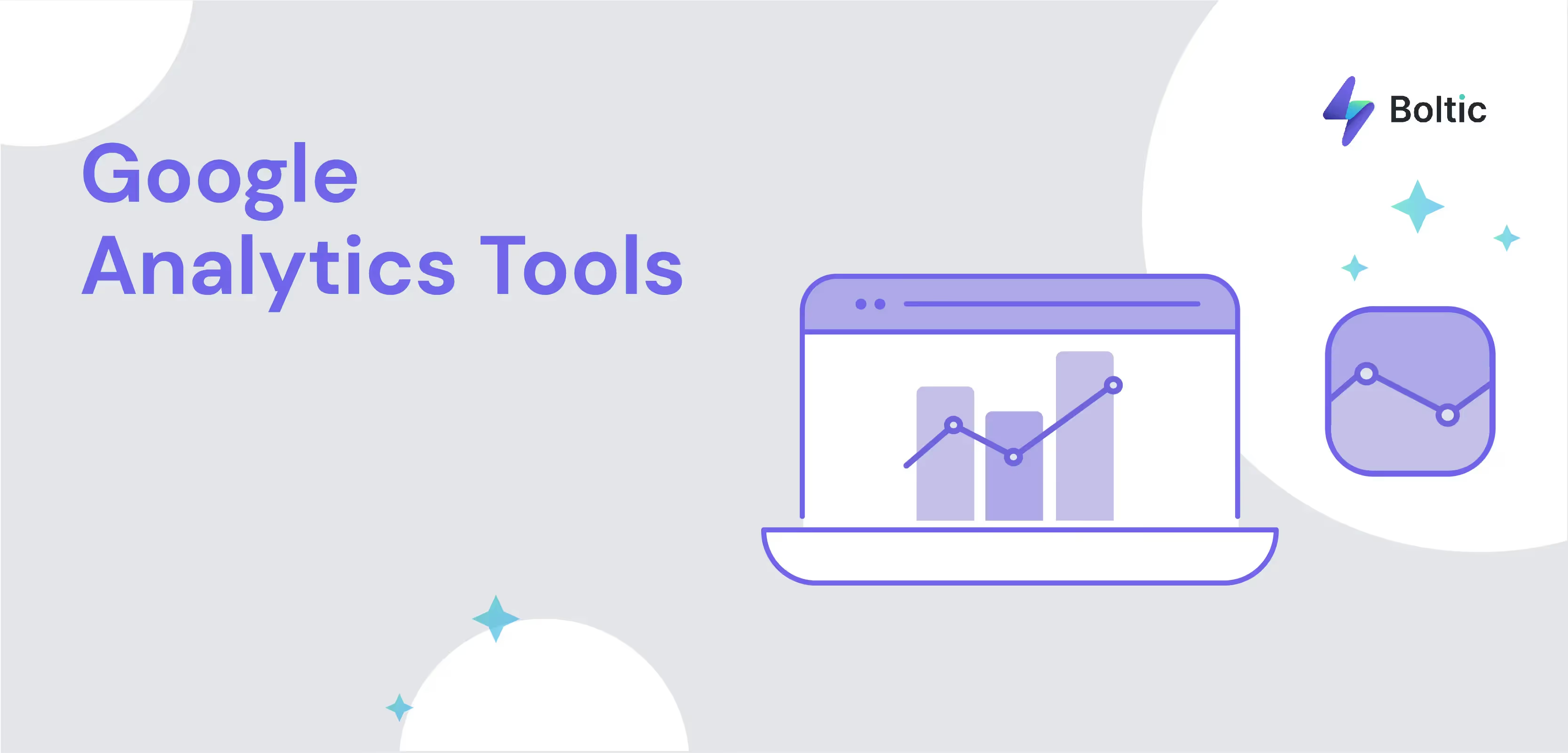The journey from autonomous to autonomy has begun with the rise of agentic AI. Imagine you walk into your office, and instead of just using AI tools, you're working beside them. That's what agentic AI brings to the table. Unlike traditional rule-based software, agentic AI is capable of making decisions in real-time.
According to a January 2025 Gartner poll, 19% of the attendees said their organization had made significant investments in agentic AI, while 42% said they had made conservative investments.
In this blog, we will explore the 10 best agentic AI startups that are leading this movement. These companies are not just building tech - they are solving real problems across real industries with real outcomes. Whether you are a founder seeking inspiration, an enterprise leader exploring AI adoption, or simply curious about intelligent systems, this list will give you a front-row seat in the future. So stay tuned.
Why is agentic AI trending now?
Businesses prefer that machines take the initiative instead of waiting for orders. As business complexity rises, organizations look for solutions that can learn, adapt, and take independent action in real time. A number of industries, including healthcare and finance, are testing systems that use agentic AI. Here are a few key points that support the trend : -
From automation to autonomy: Businesses today look for autonomous systems that are not solely reliant on inputs..
Adoption by C-suite: According to a Deloitte study, 25% of GenAI-using companies plan to introduce Agentic AI as a pilot in 2026, with that number expected to increase to 50% by 2027.
Enterprise readiness: According to the Economic Times, nearly almost 62% of businesses worldwide are now experimenting with artificial intelligence (AI) agents. It has been seen that around 88% of businesses that say they plan to allocate specific AI budgets to agentic systems in 2026.
In short, businesses are placing bets on AI because it is changing from being helpful to being highly autonomous.
What Makes a Startup Truly 'Agentic'?
A startup that builds AI systems that do not simply follow the pre-programmed instructions or guidelines but can perceive, decide, and act autonomously to produce a defined goal. This means that AI can understand context, adapt to changing situations, collaborate with humans, and even initiate tasks without waiting for explicit prompts from humans.
Unlike traditional automation, agentic startups design AI with proactive, goal-oriented, and continuous real-time learning capabilities - and acting as a trusted teammate rather than just a tool that obeys commands. An agentic AI startup needs the following things to be called so:
1. Autonomy: minimal human input
Agentic AI can make choices on its own without needing to be told what to do all the time. It looks at the facts it has and figures out what to do next once it has a job. An agentic AI system can handle a problem on its own, pass it on to someone else if necessary, or even give someone else a new task. This saves time and offers results faster.
2. Flexibility: easily adaptation
If traditional AI is put in a situation it has never been educated on, it can't make good output. But agentic AI can learn as it goes and use that information to make decisions. For instance, if market conditions or customer behavior keep changing, or if unexpected technical problems keep coming up, an adaptive AI agent can quickly change its strategy to meet the goal. It can do this by changing the way it talks to customers, changing the product it recommends, or changing the delivery route.
3. Goal orientation: result-driven
Agentic AI is different from regular chatbots or programs that give already set answers to questions. Instead, it analyzes the current situation that helps it reach its goal, such as addressing a customer complaint, detecting fraud, or completing a sale. This means that agentic AI is no longer just a tool; it can help you solve problems.
4. Real-time execution: immediate action
Older AI systems work in "batch mode," which means they gather data, analyze it, and send back conclusions hours later. Agentic AI gets rid of that wait time. It can look at data as it comes in and act on it right away to speed up operations. For example, if there is a data breach, an agentic system can quickly find the system that was breached and exclude it from the network without waiting for permission from a person.
What makes agentic AI different from regular AI
Traditional AI waits for certain inputs and then gives preset answers. It can recognize patterns and sort things into groups, but it doesn't take the lead when dealing with unfamiliar data.
Agentic AI is planned and takes action. It moves on its own, makes choices based on the bigger picture, and works toward the goal with awareness and flexibility. It is very similar to how a person would deal with a problem.
Top 10 agentic AI startups to watch
1. Boltic.io: building agentic AI solutions
Boltic.io offers an end-to-end platform for building, deploying, and managing agentic AI systems - especially suited for non-developers.
Here’s what Boltic.io is good at:
- No-code/low-code agent design - Create agents without writing code or with little code. Use visual tools to make strong AI agents. Without writing code, set goals, actions, data sources, and responses.
- Data pipeline and workflow orchestration—With
- Real-time monitoring and adaptability - Boltic provides dashboards to track agent performance and decisions and identify when human intervention is necessary.
- Enterprise integration made easy - The platform makes it easy to connect with Slack, Salesforce, Notion, Google Workspace, and hundreds of other tools right out of the box.
Pricing
It has a pricing model that is affordable for SMEs and is also scalable for enterprises. You can choose a suitable plan as per your requirement. Also, you can pay monthly or yearly. The popular plan with the launch offer is the business module.
- $0 for 30 days trial - get automated basic workflows with 1000 executions.
- $39 $99 USD / month - automate advanced workflow with 3K execution.
- $199 $399 USD / month - automate advanced workflow with 10K execution. It is the popular plan with a launch offer.
2. Pixel robotics: mobile robots for logistics
Self-driving robots from Pixel Robotics assist in moving cargo through factories and warehouses. These robots navigate and collaborate safely with humans using AI and computer vision, which speeds up and streamlines logistics.
Key features:
- Digital twin fleet manager – A smart platform that helps robots avoid obstacles.
- Teamwork between robots: To enhance delivery and mobility within warehouses, robots cooperate.
- Big tech integration: Works with technologies from Google and Microsoft for better performance.
Why Pixel Robotics stands out:
- Scalable fleet management - AI agents coordinate with multiple robots to optimize workflows.
- Real-time adaptation: Without the need for fixed tracks or infrastructure, robots can navigate through crowded, dynamic warehouse spaces.
- All-in-one hardware + AI: They create the AI brain that controls the physical robots as well as the hardware itself, so everything works perfectly together.
- Designed for specific industries: specifically made for manufacturing, e-commerce, and logistics warehouses.
3. Firsthand: tailored conversation
Firsthand is revolutionizing direct consumer engagement through AI agents made for one-on-one conversations. These AI agents help in serving customers better by allowing data ownership and guaranteeing personalized interactions. They can be tailored to match different brand voices and messaging strategies. Businesses use this flexibility to keep consistent communications while utilizing AI's efficiency and responsiveness.
Why Firsthand stands out:
- Outcome-driven: puts operational improvements and productivity ahead of general AI capabilities.
- Industry focus: knowledge transfer and enterprise field operations are areas of expertise.
- Real-world experience: develop AI agents using knowledge from subject matter experts and frontline employees.
- Smooth integration: compatible with current enterprise workflows and tools.
Pricing
No specific pricing information is made publicly available on Firsthand's website. To learn more about the products and their pricing structure, interested parties can request a demo and take advantage of a free trial..
4. Naratix: better e-commerce operations
Naratix has created a suite of AI agents to maximize e-commerce operations. Gina, an AI agent, helps improve shopping experiences by showing similar products based on past purchases. Nara, an AI assistant, speeds up lead-to-sale conversion through personalized communication.
And Dynamo evaluates data to enhance product listings, whereas Julie is an AI influencer who promotes products.
Why Naratix stands out:
- Multi-agent AI - specialized bot for content, data enrichment, pricing and recommendations.
- Global adoption - used in 30+ countries within 9 months.
- Smart data handling - cleans, maps and integrates messy supplier feeds.
- Full catalog automation - from taxonomy audits to multi-marketplace publishing.
Naratix.ai pricing plans:
- Start-up plan: priced at $9.99 per month. This plan is deal for small businesses and startups.
- Standard plan: priced at $99.99 per month and best for established brands and medium-sized businesses.
- Scale-up plan: priced at $149.99 per month and designed for companies looking for expansion.
- Enterprise plan: pricing is available for large international brands with tailored services.
5. Bilic: solutions for financial compliance
AI agent Neo can detect fraudulent activity by referring to financial data sets while monitoring transactions, satisfying the crucial need for financial security and compliance.
It uses advanced algorithms to monitor compliance, conduct client due diligence, and increase the accuracy of fraud detection. Businesses can use Bilic's AI agent in a time when financial compliance is crucial.
Why Bilic stands out -
- Intelligence data warehouse and market place - secure hub for actionable blockchain.
- Full forensics suite - AML, fund recovery and training, threat prevention.
- Trusted by agencies - used by law enforcement and enterprises.
- Community-powered intelligence - large network of analysts and investigators.
Pricing
Bilic, an agentic AI startup has a "Pay As You Go" pricing model for its background check tool, Bilic Verify. It charges $15 per applicant for the basic plan available on Bilic.io. This model offers flexibility and scalability to organizations by enabling firms to pay only for the checks they utilize.
6. Penciled: healthcare voice assistants
Nicole, an AI voice assistant, integrates patient communication directly with the electronic health records. It helps in streamlining the conversation between doctors and patients. As a result, efficient communication leads to better patient engagement.
It reduces the burden on healthcare professionals by scheduling appointments and answering patients' queries. This automation helps to streamline routine work and helps in making a responsive healthcare system.
Why Penciled stands out -
- seamless integration - works with EHRs, phone systems and fax machines.
- Healthcare focus - built especially for physical therapy clinics.
- Fills cancellation fast - AI quickly books waitlist patients to avoid lost revenue.
- Expert founders - Harvard/MIT engineers with healthcare experience.
Pricing
Penciled is designed to be pocket-friendly, prices are less than health insurance.Specific plans and tiers are not disclosed. Clinics are encouraged to use the ROI calculator to find out the potential saving and increased revenue.
7. Enhans: retail AI agents
CommerceOS, an AI agent, is designed to improve customer interactions, along with analyzing the market trends for the company. It looks after online sales, conducts promotions, and offers dynamic pricing for retail businesses.
It has been making headlines in the retail sector for making it easier to strategize product exposure and communicate with customers in a better way.
Why Enhans.ai stands out -
- Action driven AI agents - execute real-time commerce tasks, not just analysis.
- End to end commerceOS - manages the full retail lifecycle 24/7.
- Enterprise proven - trusted by Samsung, Amazon, p&G and other global brands.
- Large action model - turns language understanding into logged,autonomous actions.
8. Truffle AI:infrastructure free deployment
Truffle AI allows developers to integrate AI agents into any software application. They do this by exposing agents as simple APIs that can be called from anywhere. Developers have used Truffle to add customer support agents into WhatsApp and analytics into Slack.
What makes Truffl AI stand out -
- Infrastructure-free deployment - acts like an "AWS for AI agents", no need to manage backend, scaling or deployment overhead.
- Developer's friendly tools - a typescript SDK and drag and drop UI let you build and integrate intelligent agents with few line of code.
- Flexible for non tech users it offers easy integration and management for for a wide range of users.
- Instant functionality - offers stateful agents having built-in memory, retrieval augment generation and tool usage, ready to use out of the box.
Pricing plan
The free plan allows individuals to explore AI capabilities at zero cost - best for experimentation. Moreover, there is no publicly available pricing for Truffle AI on its website or across accessible sources.
9. Apten: an AI SMS agent
Apten is an AI SMS agent that helps B2B service companies automate their marketing and sales processes. They help businesses build custom agents that increase lead conversion and deliver personalized messaging.
What makes Apten stand out?
- Fast and 24/7 engagement: fast action and follow-up to ensure leads are not lost.
- Complex, multi-channel interactions are managed by a unified conservation flow, which is an intelligent flow.
- Deep context awareness: collects CRM context, lead history, and additional information for tailored interaction.
- Integrated compliance barrier: ensure that communications continue to reamin to rule-based protections.
Who Apten is good for?
Apten is ideal for businesses, startups and developers looking to quickly integrate AI powered capabilities into their products without dealing with complex infrastructure. It is an amazing option for organizations wanting to launch AI driven customer support, analytics and automation features within platforms.
10. Lindy
Lindy makes it surprisingly easy for teams to put AI agents to work in sales, marketing, and operations. Without needing to touch a single line of code, users can build task-oriented AI agents that handle real work like CRM updates, inbox triage, or lead outreach.
What’s inside Lindy:
- A drag-and-drop builder that feels like workflow software.
- Access to more than 3,000 apps through integrations like Gmail, Slack etc.
- A prebuilt library with ready-to-run templates.
What Lindy is good at:
- Keep GTM workflows on autopilot for small to medium-sized companies.
- Offer regulated industries compliance safeguards (SOC 2, HIPAA-ready).
- Allowing operations, support, and marketing teams to move faster without waiting on dev support.
Pricing:
- Free plan having limited tasks.
- Paid tiers starting at $49/month for more AI usage.
- Plans like $299/month and up for heavy needs.
Industry applications of agentic AI startups
Startups using agentic AI are busy building systems that convert traditional workflows into intelligent, self-governing systems that change operations across industries by adapting, learning, and acting. Let us find out how agentic AI has changed several sectors and their processes.
Agentic AI has made it possible for industries like software, healthcare, and logistics to make decisions more quickly, at a lower cost, and with context-aware operations that are always learning and getting better.
- Retail and hospitality - Real-time room settings as per customer need, food selections, and experiences are made possible by the use of agentic AI in the retail and hospitality industries. Based on patterns in demand, these agents are able to reorder supplies on their own and stock in real-time. In order to answer clients' questions, they also offer 24/7 support in many languages.
- Healthcare and life sciences: To suggest which treatment option a patient needs, agentic AI examines a patient's data, symptoms, and medical histories. They support the automation of clinical workflows, including data entry, scheduling automation, patient intake, and post-care follow-up. Agentic AI reduces R&D time and expense by predicting drug efficacy by identifying chemical combinations.
- Finance and banking - Agentic AI keeps monitoring fraudulent activities and flags anomalies instantly and keeps learning with time. These agents help in adjusting portfolios based on market trends and user goals without human involvement. They evaluate creditworthiness, validate documents, and underwrite loans in minutes, unlike manually in days.
- Logistics and manufacturing - Agentic AI monitors machinery in real time and triggers maintenance in advance before failure occurs.They help in autonomous supply chain management by route forecasting, vendor communication, and supply/demand forecast.
- Software and technology - AI agents deploy updates, resolve bugs without developers' intervention, and monitor performance. Virtual agent offers technical assistance, troubleshoots in real-time, and escalates when needed. They also monitor usage and access patterns to ensure data compliance.
- Travel and transportation - For airlines and logistics, AI agents adjust best routes based on traffic, delays, and weather. Agents customize travel packages, upsell services, and adjust bookings autonomously. They offer a wonderful customer experience by handling check-ins, boarding, and support via mobile to reduce human load
Why investors are betting big on agentic AI?
Agentic AI has been grabbing the attention of most of the investors - not just because of the AI hype, but because it represents a deeper shift - from tools to systems that can act by themselves. Let us break it down further to understand why investors are investing in Agentic AI.
- Explosive market growth - As per a Report by Marketandmarkets, the agentic AI market is projected to reach $93.20 billion by 2032, growing at a CAGR of 44.6%. In order to adopt Agentic AI, organizations are rapidly allocating a special budget.
- Beyond automation - intelligence with intent - Traditional automation tools offer limited ROI and face problems related to scalability and flexibility. Whereas, agentic AI is open to dynamic conditions and can act without human interruption. As per McKinsey, organizations using autonomous agents saw a 27% boost in operations as compared to those using traditional or rule-based automation.
- Wide range of applications across industries - Agentic AI is not limited to a single industry; rather, it has become a tech trend across nearly every sector. Startups that are focusing on their use cases are seeing rapid acquisition interest and funding rounds from VCs who want a stake in scalable, AI-first platforms. As per BCG, 3 out of 5 organizations are planning to adopt agentic AI in core operations by 2026.
- Competitive advantages for enterprises - Gartner predicts that by 2027, companies using agentic AI will outperform competitors by 45% in operational efficiency. This has caught the attention of investors and owners to adopt agentic AI and boost their operations. Those who have already been working with it are cutting operational costs and turnaround times and responding to market change faster.
Conclusion: agentic AI is just getting started
The rise of agentic AI marks a pivotal evolution in how we think about AI - not as a tool anymore but as an intelligent entity that perceives, decides, and acts. Industries are witnessing a monumental shift from task-based automation to AI agents that can think and operate independently. This whole thing has transformed business operations and how users engage with systems and how decisions are made in real life.
Why agentic AI startups matter?
The agentic AI startups that are making waves today not just build cool products, but they are redefining the enterprise intelligence. From proactive cybersecurity agents to autonomous customer support systems, these startups are -
- solving real-world problems with adaptive solutions.
- delivering measurable ROI through automation with context awareness.
- creating plug and play AI agents that helps in evolving business.
Ready to get started with Agentic AI? Boltic.io can help
If you are ready to tap into the potential of agentic AI but don’t know where to start, Boltic.io is your launchpad.
Boltic helps enterprises design, deploy, and manage agentic AI workflows with zero code. Whether you want to automate decision-making, build agents that operate across multiple tools, or orchestrate real-time actions based on your business oals - Boltic makes it simple, smooth, and secure.
With built-in integrations and powerful no-code logic and real-time data handling, Boltic empowers your organization to move from task automation to agent-led intelligence - without heavy engineering resources.
drives valuable insights
Organize your big data operations with a free forever plan
An agentic platform revolutionizing workflow management and automation through AI-driven solutions. It enables seamless tool integration, real-time decision-making, and enhanced productivity
Here’s what we do in the meeting:
- Experience Boltic's features firsthand.
- Learn how to automate your data workflows.
- Get answers to your specific questions.








